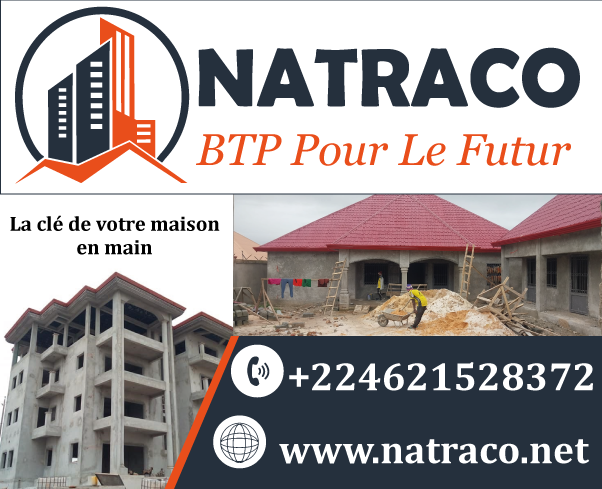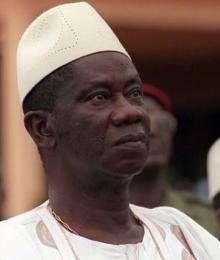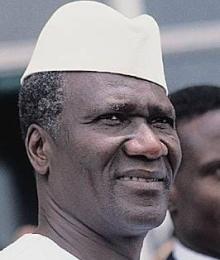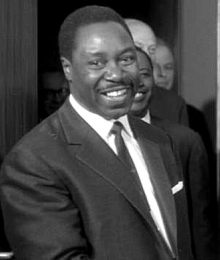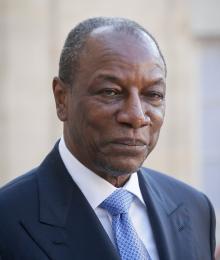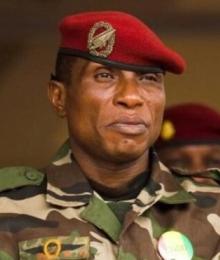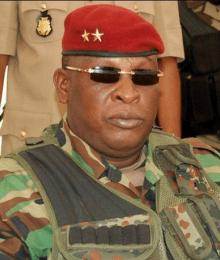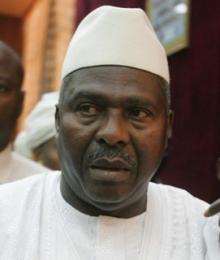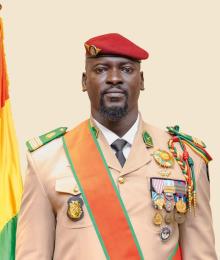
Mamadi Doumbouya, President of the National Committee for Unity and Development (CNRD), is a prominent figure in Guinea, having served as the country's president since his military coup in 2021.
Prior to his political career, Doumbouya had an extensive military background, having served as a French legionnaire before joining the Guinean military. He later rose through the ranks to become the head of the Guinean Special Forces Group, a position he held until his coup.
Doumbouya's background and military experience have shaped his leadership style, which is characterized by a no-nonsense approach to governance.
In this biography, we will delve deeper into the life of Mamadi Doumbouya, exploring his early years, military career, and rise to power as the president of Guinea Conakry.
Through this, we hope to gain a better understanding of the man behind the political figure and the factors that have shaped his leadership style.
Introduction
Mamadi Doumbouya (born 5 December 1984 in Bananköröda, Kankan) is a Guinean military and statesman. After a career in the French Army as a legionaire, he returned to Guinea in 2012 and took command in 2018 of the Guinean Army Special Forces Group, an elite unit specialized in counter-terrorism. In September 2021, he led a coup d'état against President Alpha Condé and became chairman of the National Assembly Committee for Development (CNRD) and president of the Transition in Guinea.
Childhood
Mamadi Doumbouya was born on March 4, 1980 in Bananköröda, in the Kankan region, the second largest city in eastern Guinea. He was the son of Karifala Doumbouya and Hadja Mandioula Sylla. He studied at the Oumar Drama School in Kankan.
Education and Training
After his primary education, Mamadi Doumbouya continued his training in Senegal, Gabon and Israel, where he attended military training. He was also a Guinean trainee at the École de guerre in France, where he obtained a French patent for military graduate studies. He also holds a master's degree in defence from the University of Paris-Panthéon-Assas and a diploma from Saumur in the framework of cooperation between France and African partner states for the training of graduates.
Military career
In 2009, Mamadi Doumbouya completed his contract as a legionaire in the French Army, reaching the rank of caporal. He returned to Guinea in 2012 and, starting in 2018, took command of the Special Forces Group (GFS or GPS), an elite unit of the Guinean army specialized in counter-terrorism. He is the leader of this unit at the national celebration of Guinea's 60th anniversary of independence. In 2019, he participated in a Flintlock military training for the African military elite, representing his country in Ouagadougou. He became Lieutenant-Colonel in 2019 and then Colonel in 2020.
Thro the year 2021, he attempted to make the Special Forces Group less dependent on the Ministry of National Defence, raising suspicion among the Guinean authorities. Rumors even claim that he was arrested in May 2021. Finally, on 24 January 2024, he was promoted to General of the Guinean Armed Forces Corps and left the head of the Special Forces Group after six years in command, replaced by Colonel Mouctar Kaba.
Coup d'état of September 5, 2021
On September 5, 2021, Mamadi Doumbouya announced the arrest of the President of the Republic of Alpha Condé, the dismissal of the government, the suspension of the Constitution, the establishment of a ceasefire and the closure of land and air borders. Invoking "the socio-political and economic situation of the country, the malfunctioning of republican institutions, the instrumentalization of justice, the stumbling on of citizens' rights", he proclaimed the establishment of a National Committee of Assembly for Development (CNRD) and invited the military to remain in the barracks. He then says, "We don't need to rape Guinea anymore; we just need to make love to her, simply."
President of the Transition
Twelve days after the coup d'état, on 17 September 2021, the junta appointed him President of the Republic. On 27 September, the transition charter was issued, making Doumbouya the president of the Transition. It also provides for the designation of a National Transitional Council, acting as a Parliament, which will be responsible for drafting the next Constitution. In addition, Doumbouya and the other members of the junta were declared ineligible for the upcoming elections. He was sworn in on October 1 at Mohammed V's Palace in the Supreme Court.
On October 6, 2021, Doumbouya appointed Mohamed Béavogui as Prime Minister. On 11 October, he received the support of Julius Maada Bio, President of the Republic of Sierra Leone, who became the first head of state to visit Guinea since the coup, allowing the reopening of borders with neighbouring countries.
On December 10, 2021, Mamadi Doumbouya established the Presidential Priorities Monitoring Office (PBSP), a body to monitor the implementation of the priority programmes of the Transitional President.
In April 2022, he ordered majority foreign-owned mining companies to start building factories to refined bauxite in the country. On 20 August 2022, he appointed Bernard Goumou as Prime Minister to replace Mohamed Béavogui. Then, on February 27, 2024, he appointed Bah Oury Prime Minister, replacing Bernard Goumou.
Sustaining the transition
In early May 2022, the junta announced a three-year and three-month transition from that date. However, under pressure from ECOWAS and part of the international community, the deadline was finally shortened to three years in October 2022. Mamadi Doumbouya then committed to further reducing the duration of the transition, announcing two years from January 2023.
On 28 January 2023, he was visited by the Sierra Leonean President Julius Maada Bio at Conakry's Ahmed-Sékou-Touré airport, on a working visit to Guinea.
Following the deadly explosion at the Kaloum fuel tank on 17 December 2023, Mamadi Doumbouya expressed his condolences to the families of the victims and to the people of Guinea.
On December 31, 2023, he announced the holding of a constitutional referendum "during the new year".
Dissolution of government
On 19 February 2024, General Mamadi Doumbouya announced the dissolution of the transitional government led by Bernard Goumou, without giving further details. The CNRD the freezing of bank accounts, the withdrawal of bodyguards, the recovery of service vehicles and the seizure of passports of members of the former government. Current affairs will be handled by senior officials until a new government is appointed.
Foreign policy
Diplomatically, Mamadi Doumbouya made several trips abroad. On 21 September 2021, he travelled to Bamako for a working visit, received by Colonel Assimi Goita. On 28 October 2022, he visited the President of Sierra Leone, Julius Maada Bio. On 3 June 2023, he attended the inauguration of Turkish President Recep Tayyip Erdogan in Ankara. In September 2023, he took part in the 78th session of the United Nations General Assembly in New York.
Political opposition
Although the junta excluded Mamadi Doumbouya and his members from any future elections, political opposition began to build up in Guinea. Some parties and figures in the opposition to Alpha Condé's former regime have expressed their reservations about the transition process and demand a swift return to constitutional order.
Decorations and honors
In recognition of his work, Mamadi Doumbouya received several awards:
- 2021 : Grand Cross of the National Order of Merit of the Republic of Guinea
- 2022 : Grand Cross of the National Order of the Republic of Mali
- 2023 : Honoris Causa Doctor of the Gamal-Abdel-Nasser University of Conakry
Private life
Mamadi Doumbouya is married to Lauriane Doumbouya, a French sub-officer of the gendarmerie. Together, they have five children.
Conclusion
From the ranks of the Guinean army, Mamadi Doumbouya took power in 2021 in a coup d'état aimed at ending Alpha Condé's regime. Since then, he has established himself as the president of the transition in Guinea, with the aim of redressing the political, economic and social situation in the country. Its course and actions have generated many debates, between supporters and opponents, at the national and international levels.




